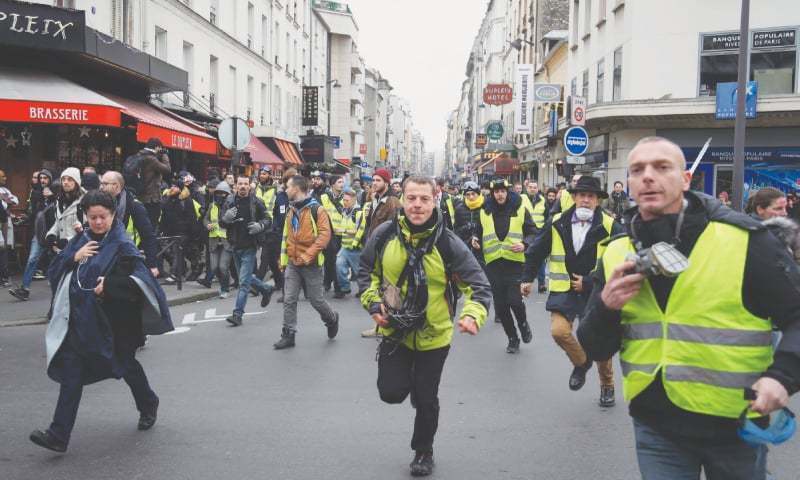×
The Standard e-Paper
Fearless, Trusted News

Thousands of "yellow vest" protesters returned to the streets of France Saturday to protest against President Emmanuel Macron's policies, clashing with police in several cities in a challenge to his bid to quell the movement.
Police fired tear gas and water cannon to push back protesters at Place de la Bastille in Paris, one of the regular protest areas, as some demonstrators threw stones from a building site.